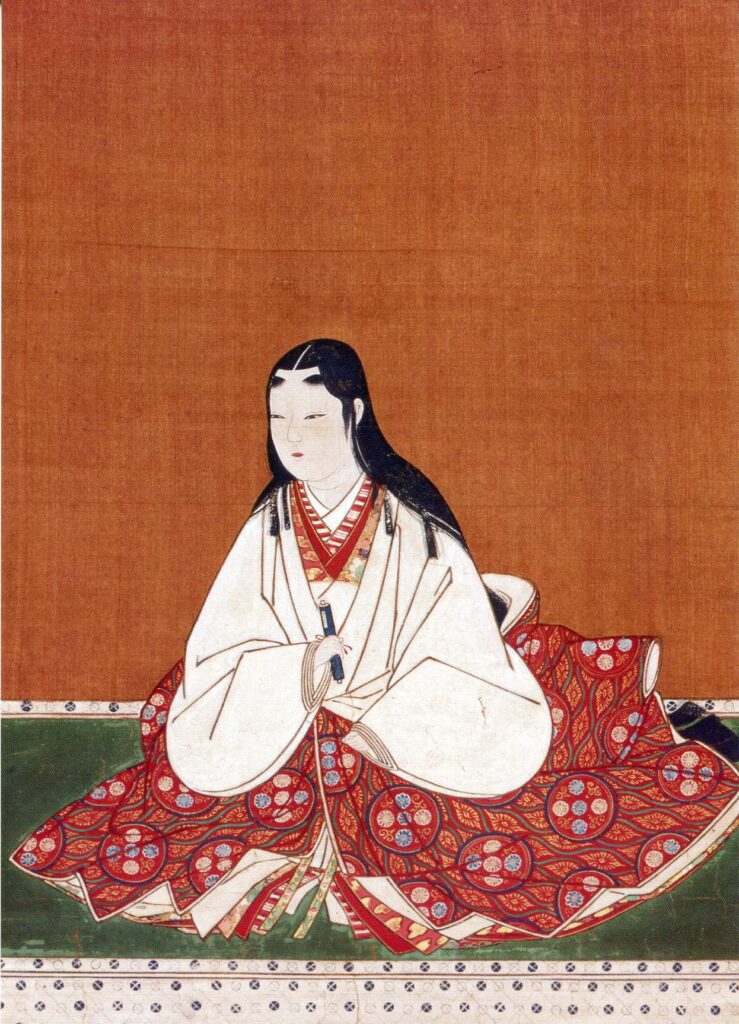

お市の方 Oichi no Kata
1547 ~ 1583
A Woman Who Combines Intelligence, Love for Her Family, and Core Strength
During the Sengoku period, many distinctive people made a mark in Japanese history. Among them was Oichi no Kata, who was one of the most beautiful women representing the Sengoku period.
She was married to the warlord Nagamasa Asai. Although they pledged their eternal love, the end of their marriage was truly tragic.
Sister of a Famous Shogun
Oichi no Kata is the younger sister of Nobunaga Oda, a famous warlord representing the Sengoku period. Her brother Nobunaga was a man of fierce temper and quick judgment who rose to unify the country. He was very fond of her.
Like her tall brother, Oichi was also tall for a woman of her time at 165 centimeters (5 feet 5 inches) and was also very strong. He told her that if she had been a man, she would have been a good general, also with her said intelligence and boldness.
Nobunaga seemed to have been highly impressed with her younger sister Oichi’s ability, as he gave her to Nagamasa Asai for marriage. Until Oichi, most of Nobunaga’s previous political marriages had been with his adopted daughters, and he had not given many of his own daughters or sisters in marriage.
About Nagamasa Asai Who Became Her Husband
Nagamasa Asai, the husband of Oichi, had established friendly relations with the Asakura clan in Echizen Province, but when Nobunaga Oda increased his power, he married her.
Nobunaga, aiming to unify the country, formed an alliance with Nagamasa Asai, a feudal lord in Omi (Shiga Prefecture), to subjugate the neighboring Mino (Gifu Prefecture) and secure passage through northern Omi in preparation for the upcoming capital city of Kyoto. At the time, Oichi was 21 years old.
Nagamasa Asai was a feudal lord of Omi (Shiga Prefecture), and despite his young age, he had a strong sense of responsibility as the head of the family, was passionate about justice, and was strongly trusted by his subjects. Their marriage brought them a happy life, but it did not last long.
Her Husband Betrays her Brother
Nobunaga attacked “Yoshikage Asakura” in Echizen, who had long been on close terms with the Asai family. When Nagamasa attacked Nobunaga from behind to save the Asakura family, the Oda family and the Asai family broke off. In fact, the “Asai” and “Asakura” families had long been allies since the days of Nagamasa Asai’s grandfather. When Nobunaga Oda and Nagamasa Asai formed an alliance, they promised that the Oda family would not attack the Asakura family. Nobunaga unilaterally broke that promise and attacked the Asakura family. Using this “breach of promise” as an excuse, Nagamasa Asai betrayed Oda Nobunaga.
It was at this time that the famous anecdote of Oichi no Kata was born. It is said that during the Battle of Kanegasaki, Oichi no Kata delivered an azuki (red beans) sack to her brother Nobunaga to visit him in the battle, because a letter would look suspicious. This azuki (red beans) sack is used by Nagamasa Asai, who has betrayed Nobunaga and is about to attack from the rear. His brother is pinched in between.
Nobunaga, seeing the azuki (red beans) trapped in the sack, realized that he would become the “rat in the sack,” and began a hasty retreat, thus achieving nine lives.
In the “Battle of Azukizaka,” Oda’s army was defeated by a detachment of Imagawa’s army. (Or the “azuki-red” color of “mouse” is called “azuki-rats,” and it is thought that “azuki” itself implied “rat.)
Nobunaga thus regrouped his troops and attacked Omi again.
Nagamasa and Yoshikage Asakura fought back but were severely defeated, and the Asai clan was greatly reduced in power.
In the Sengoku States period, it was said that women valued their family of birth rather than their family of proximity, and Oichi was a diplomat and spy sent by the Oda forces to the Asai family. However, it is said that the couple remained on good terms even after they came into conflict with the Oda family.
Her Husband Commits Suicide, and She Receives a Love Call from Toyotomi Hideyoshi
Eventually, Nagamasa committed suicide. After that, Oichi no Kata and her three daughters were taken in by the Oda family. Nobunaga cared for Oichi no Kata and allowed her to live in luxury. However, another tragedy happened to her.
When her elder brother Nobunaga died in the Honnoji Incident, Toyotomi Hideyoshi took over the real power of the Oda family. It is said that Hideyoshi had a passionate love for Oichi no Kata, while she disliked him.
Therefore, Oichi no Kata remarried Katsuie Shibata to avoid being taken in by Hideyoshi. She moved to Echizen (Fukui Prefecture) with Katsuie. However, Katsuie was also destroyed by Hideyoshi. Katsuie had no intention of taking her with him and persuaded her to flee with his three daughters, but she, who had no desire to live in this war-torn country, left her three daughters and committed suicide with Katsuie.
A Woman Who Stood Up Against Politics
Oichi no Kata was “a person who watched Oda Nobunaga’s administration from the center. She was a politician, not just a woman who was swept along”.
Regarding her remarriage to Katsuie Shibata, it is believed that “she had the desire to support the Oda administration by bringing him into the Oda family”.
It was a time when Hideyoshi’s ambition to seize power after Nobunaga’s death was transparent. To protect the Oda family with Nobunaga’s third and excellent son, Nobutaka, at the core of the family, she probably wanted Katsuie, Nobutaka’s crowned and trusted parent, to become a member of the Oda family.
I believe that she was a woman who stood up to the politics of Japan’s ever-changing Sengoku period.
As I wrote in the title, if I were to compare Oichi no Kata to a modern-day American, she would be Ms.Michelle Obama, the wife of former President Barack Obama.
Michelle supported President Obama, whose approval ratings were declining, and gave speeches around the country, appealing for a stance of economic policy and health care reform based on conviction, not just political calculation.
Oichi no Kata also married into the Asai family for her brother Nobunaga and became a central figure in the alliance between the Oda and Asai families. After her husband’s death, she married into the Shibata Katsuie family, perhaps because she did not want to become a frame for Hideyoshi’s ambitions.
Michelle says that even when she was discriminated against, she never felt upset or discouraged by it. Even though Oichi no Kata was also evaluated as a valuable piece in a fast-changing political system, the way she carried herself without being swept away suggests that she, like Michelle, lived her life believing she is a person of value and not someone to be looked down upon.
.
.
.




